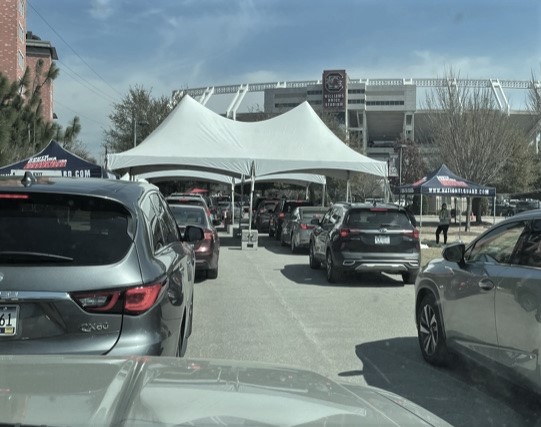Text & Image
How is the coronavirus pandemic affecting your life right now? Tell us about your experiences, feelings, and thoughts.
<strong> When a local doctor’s office cancelled our second Pfizer vaccination appointment due to lack of vaccine</strong> on hand,<strong> my husband and I, as seniors, were frantic</strong>. We scanned the Vaccine Administration Management System (VAMS) for any nearby openings within the recommended time frame, but none were available. However, I just happened to access the website of<strong> a large healthcare system in our state</strong> and discovered that this system <strong> was partnering with the National Guard and other volunteers to stage a Monday through Saturday drive-through vaccination site in a neighboring county</strong> where second dose Pfizer vaccine walk-ins were permitted, as well as first doses by appointment. <strong> We jumped into our vehicle, drove 30 miles and ultimately joined a long and winding queue in a football stadium parking lot. After a two-hour procession,</strong> we steered our Silverado under a huge tent,<strong> rolled up our sleeves and received our final vaccinations</strong>. My husband of 41 years chuckled when he could see that I was having difficulty suppressing tears of relief and joy. (I couldn’t help it—after a year of anxiety and isolation—we are finally free to dream of the future and reboot our lives!) Nevertheless,<strong> I remain concerned for the elderly and the underprivileged who are struggling to locate available vaccines, make appointments and find transportation </strong> to vaccination centers. Government officials and policy makers need to work relentlessly to ensure that all citizens have equal access to COVID-19 vaccines.
March 19, 2021
